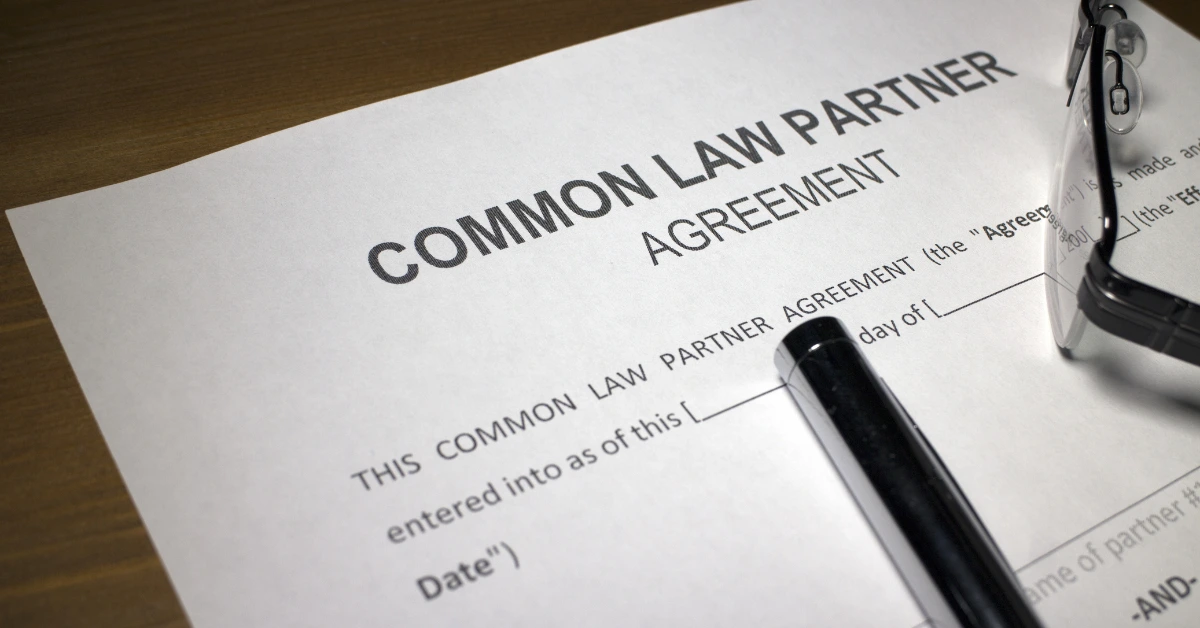Expert legal guidance for fair asset division under Ontario law
Property Division Lawyer Toronto - Expert Help for Divorce Asset Division
When facing divorce in Ontario, understanding how to split assets properly is crucial for your financial future. As experienced property division lawyers in Toronto, we help families navigate Ontario’s complex equalization process. Whether you’re dealing with the matrimonial home, pensions, business interests, or shared debts, we ensure you understand your rights and protect what you’ve worked hard to build.
- Equalization process
- Matrimonial home
- Shared debts
- Pension division
- Asset disclosure
- Legal exemptions

Let’s start with a free case review
Tell us about your situation, we’re here to help you
Why Choose Our Toronto Property Division Lawyers
When your financial future is at stake, you need experienced family property division lawyers who understand Ontario’s complex equalization laws. Here’s what sets Nussbaum Law apart:

Proven Track Record in Property Division
With over 17 years practicing family law in Ontario, we’ve successfully handled hundreds of property division cases, from simple asset splits to complex business valuations worth millions.
Deep Knowledge of Ontario Property Law
We know the Family Law Act inside and out. Our expertise covers matrimonial homes, pension division, business assets, and the nuances of equalization calculations that can save or cost you thousands.
Strategic Approach to Asset Protection
We don’t just divide assets, we protect your financial interests. Our thorough documentation process and strategic negotiations have helped clients secure fair settlements while avoiding costly court battles.
Transparent Communication & Pricing
No legal jargon, no surprise fees. We explain your options in plain English and provide clear pricing so you can make informed decisions about your case.
Local Toronto Expertise
As Toronto-based family lawyers, we understand the local real estate market, business landscape, and judicial preferences that can impact your property division outcome.
Get legal protection today
Talk to a family lawyer today and start your case with real guidance. Book a free consultation or give us a call.
Our Property Division Process
We’ve developed a proven 4-step approach that protects your financial interests while minimizing stress and legal costs. Here’s how we guide you through dividing assets in divorce Ontario:
Step 1: Complete Asset Assessment
We start by documenting everything you own, including your home, pensions, business interests, and debts. Our detailed process ensures we don’t miss anything that could cost you later.
Step 2: Professional Valuations
Property division depends on accurate valuations at key dates. We coordinate with trusted appraisers, business valuators, and pension specialists to establish fair market values that hold up in negotiations or court.
Step 3: Strategic Negotiation
Most property divisions resolve without trial. We focus on reaching legally binding agreements that protect your financial interests through mediation and collaborative negotiation, saving you time and money.
Step 4: Legal Protection
Once we reach an agreement, we ensure it’s properly documented and legally enforceable. Our divorce agreements protect your interests and provide clear guidelines for asset transfers and ongoing obligations.

Ready to protect your assets?
Schedule your free consultation to discuss your specific situation and learn how we can help secure your financial future.
Types of Assets We Help Divide
When splitting assets in divorce Ontario, every type of property requires specialized knowledge. Our family property division lawyers handle all asset categories to ensure fair division of assets:
Matrimonial Home
The family home has special rules under Ontario’s Family Law Act. We help determine possession rights, equity division, and buyout options for matrimonial home division while protecting your housing security and financial interests.
Pensions & RRSPs
Retirement assets often represent your largest investment in division of assets cases. We coordinate pension valuations, understand vesting rules under Ontario law, and structure divisions that protect your retirement security.
Business Assets
Business asset division requires expert analysis under Ontario property law. We work with certified appraisers to determine fair market value and negotiate structures that protect business operations while ensuring equitable division.
Investment Portfolios
Stocks, bonds, and investment accounts need careful timing and tax consideration in divorce asset division. We help minimize tax implications while ensuring fair distribution of investment gains and losses.
Personal Property
From vehicles and jewelry to art and collectibles, we help value and divide personal assets efficiently in Ontario divorce proceedings without unnecessary conflict or court intervention.
Shared Debts
Debts are part of property division under Ontario’s equalization process. We analyze which debts are shareable under family law and structure agreements that protect you from unfair liability.
How Property Division Works in Ontario
Understanding Ontario’s property division laws is essential when facing divorce. There are many factors to consider during property division that can significantly impact your settlement. Our family property division lawyers guide clients through this complex process every day.
The Equalization Process Under Ontario Law
Ontario follows an equalization system under the Family Law Act, not a simple 50/50 split of assets. Each spouse calculates their “net family property” – the value of assets owned on separation date minus debts, excluding property brought into the marriage. The spouse with higher net worth pays the other an equalization payment to balance the difference.
What Counts as Family Property
Family property includes all assets acquired during marriage that still exist at separation, plus any increase in value of pre-marital property. This covers your home, investments, pensions, business interests, and personal belongings. However, gifts and inheritances from third parties are typically excluded from division.
The Valuation Date
Property values are calculated as of your separation date, not divorce date. This makes early legal consultation crucial – asset values can change significantly, and proper documentation protects your financial interests throughout the division process.
Equalization vs. Actual Division
Most people misunderstand property division. You don’t necessarily split each asset in half. Instead, one spouse may keep the house while the other keeps investments, with an equalization payment balancing the values. Our property division lawyers help structure these arrangements to minimize tax implications and protect your priorities.
Married vs. Common-Law Property Rights in Ontario
The property rights you have during separation depend entirely on whether you were legally married or in a common-law relationship. Understanding this distinction is crucial for protecting your financial interests.
Property Rights for Married Couples
Married spouses have automatic rights to property division under Ontario’s Family Law Act. You’re entitled to equalization of net family property regardless of whose name assets are in. The matrimonial home receives special protection – both spouses have equal possession rights and neither can sell or mortgage it without the other’s consent, even if only one name is on the title.
Property Rights for Common-Law Partners
Common-law couples have no automatic property division rights in Ontario, regardless of relationship length. Understanding your common-law relationship rights is crucial before separation. You typically keep only assets legally in your name. However, you may have claims under ‘unjust enrichment’ if you contributed to property not in your name – such as paying mortgage payments, renovations, or working in a partner’s business without fair compensation.
Protecting Your Rights in Both Situations
Whether married or common-law, documentation is essential. Our property division lawyers help married couples navigate equalization calculations and assist common-law partners in proving contributions to shared assets. We also draft cohabitation agreements that can establish property division terms before issues arise.
Why Legal Guidance Matters
The complexity increases when relationships blur the lines – such as couples who lived common-law then married, or those with assets in multiple jurisdictions. Our experience with both married and common-law property issues ensures your rights are properly protected regardless of your relationship status.

Frequently Asked Questions About Property Division in Ontario
How is property divided during a divorce in Ontario?
In Ontario, married spouses share the increase in value of their property from the date of marriage to the date of separation through a process called equalization. Rather than splitting each item equally, the law equalizes the value by calculating a net difference, then one spouse pays the other to balance the gap. This system applies only to married couples – common-law partners do not automatically share property but may have claims under different legal grounds like unjust enrichment.
What happens to the matrimonial home in separation?
The matrimonial home is treated differently from other property. Both spouses have equal rights to possession, regardless of whose name is on the title. Neither person can sell or mortgage it without the other’s written consent. Its full value is included in the property division, even if one spouse owned it before the marriage. If you’re separating, you may need to arrange exclusive possession or sale of the home, especially when children are involved.
Are debts divided the same as assets?
Yes, debts are factored into the equalization calculation. Both assets and liabilities are considered when determining net family property. If one spouse incurred debt during the marriage, it can reduce their overall share of property. However, not all debt is shared – courts examine whether the debt was used for family purposes. Documentation and timing matter significantly in how debt is handled.
How long does asset division take in Ontario?
Most property divisions resolve within 6-12 months through negotiation or mediation. Complex cases involving business valuations or international assets may take longer. Court proceedings can extend timelines significantly, which is why we focus on alternative dispute resolution methods that save both time and money.
How much does a property division lawyer cost in Toronto?
Legal fees vary based on case complexity, but we offer transparent pricing and free consultations to discuss your specific situation. Our experienced divorce lawyers in Ontario provide clear fee estimates upfront and work efficiently to minimize costs while protecting your financial interests.
Can property be divided without going to court?
Yes, most property divisions are resolved through agreements outside of court. Spouses can negotiate directly or with lawyer assistance through mediation or collaborative law. If an agreement is fair and follows legal requirements, courts can formalize it without litigation. This approach allows for more flexible solutions and saves both time and legal costs.
How are pensions and business assets divided?
Pensions are considered property and must be valued accurately for division. The pension holder must obtain a valuation from the plan administrator, which is included in the equalization process. Business assets also require professional valuation to determine fair market value. These complex assets often need expert appraisers and can significantly impact the overall property division calculation.
Protect Your Financial Future - Schedule Your Free Property Division Consultation
Don’t let poor asset division decisions cost you thousands or jeopardize your financial security. Property division is one of the most important aspects of your divorce, the choices you make now will impact your financial future for years to come.
Why Act Now:
- Property values change daily – early legal guidance protects your interests
- Ontario law has strict timelines for property claims
- Proper documentation from the start prevents costly disputes later
- Early negotiation often achieves better results than court battles
What You Get in Your Free Consultation:
- Clear explanation of your property division rights under Ontario law
- Assessment of your assets and potential equalization payment
- Strategic advice on protecting your most valuable assets
- Transparent discussion of legal fees and timeline expectations
Ready to secure your financial future?
- Call (416) 916-0886 for immediate assistance
- Book Your Free Consultation Online – Available within 24 hours
- Email [email protected] with your questions
- Visit Our Toronto Office – Convenient downtown location with free parking
No obligation. No pressure. Just honest legal guidance when you need it most.
Serving Toronto, Mississauga, Vaughan, and the Greater Toronto Area
What real clients say about us
Trusted by families across Toronto for reliable, results-focused legal help
Clear advice, multiple strategies, and honest communication. Barry handled my case efficiently with fair, transparent billing throughout the process.
Barry explained every step with clarity, patience, and professionalism. Court preparation was thorough, and his commitment showed throughout.
Barry handled my family matter with care, professionalism, and clear communication. I would confidently recommend their services.
Barry approaches every case with focus, clarity, and a practical mindset. Working with him made a difficult situation manageable.
Barry and his team turned a complicated situation into a respectful resolution. Their approach was steady, thoughtful, and highly professional.
Professional, attentive, and thorough—Barry and his team delivered strong representation when it mattered most. I’m grateful for their support.
Nussbaum Law handled my family matter with care, professionalism, and clear communication. I would confidently recommend their services.
Barry consistently provides timely, reliable legal support. I’ve used his services and referred others with full confidence every single time.

Tell us what you're facing –we're here to help
Start your case today. It’s free, simple, and we’ll reach out within one business day to walk you through next steps.
– Barry Nussbaum, JD, MBA, Senior Lawyer
